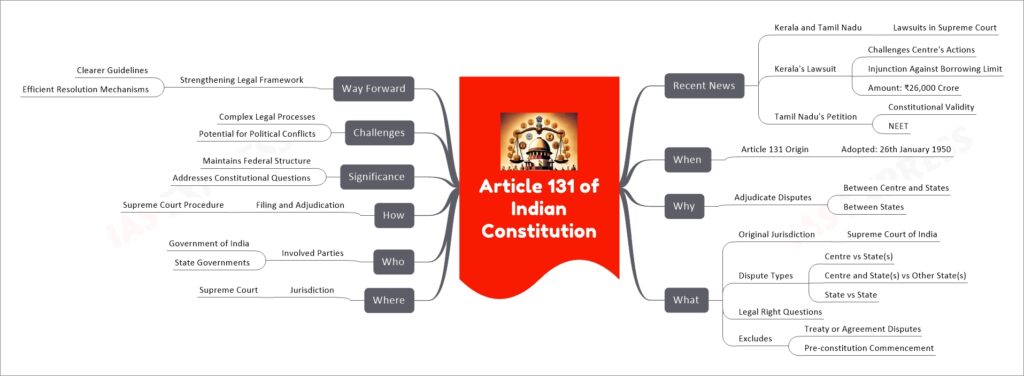Article 131 of Indian Constitution

Article 131 of the Indian Constitution is a legal provision that gives the Supreme Court of India the original jurisdiction to adjudicate disputes between the central government and one or more states, between different states, and between the central government and a group of states. This article has been a pivotal tool for addressing conflicts and maintaining the federal structure of India. It was recently invoked by the state governments of Kerala and Tamil Nadu to file lawsuits against the central government, highlighting its ongoing relevance and utility in resolving key constitutional and legal disputes in the country.
If you like this post, please share your feedback in the comments section below so that we will upload more posts like this.

